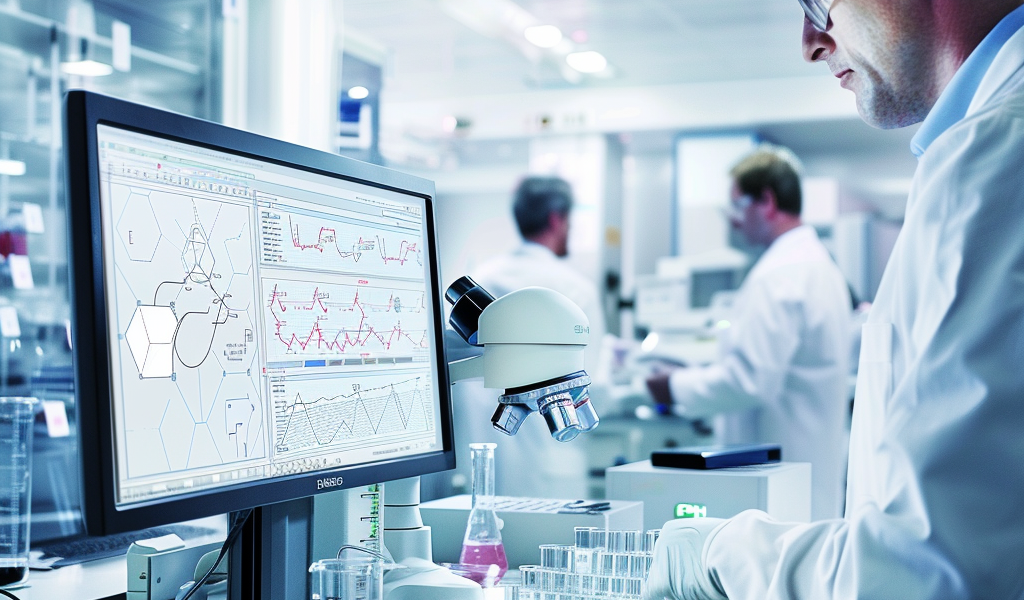In a groundbreaking advancement in medical diagnostics, researchers at the London Health Sciences Centre (LHSC) and Lawson Health Research Institute have unveiled a revolutionary method for diagnosing rare diseases and birth disorders using cutting-edge technology and artificial intelligence. This innovative approach, known as EpiSign, leverages a simple blood test to detect genetic abnormalities that have long eluded accurate diagnosis.
The studies, published recently, highlight the pioneering work of Dr. Bekim Sadikovic, a leading scientist at Lawson. EpiSign technology operates by analyzing a patient’s epigenome—a unique chemical signature that influences gene activity without altering the underlying DNA sequence. This method allows for the identification of over 100 genetic disorders that were previously challenging or impossible to diagnose.
Dr. Sadikovic emphasized the significance of this technology, stating, “EpiSign technology is something we’ve been working on for a good part of the last decade. It enables us to utilize a patient’s DNA from blood to measure their epigenetic patterns. Notably, it can predict certain diseases, which is a remarkable step forward in precision medicine.” This capability is particularly crucial in the context of complex conditions like recurrent constellation of embryonic malformations (RCEMs), which the research team successfully identified using EpiSign.
RCEMs, first described over 70 years ago, present significant diagnostic challenges due to the lack of specific markers associated with these malformations. Consequently, many affected individuals and their families have historically faced uncertainty regarding their conditions. The introduction of EpiSign promises to change this narrative by providing clarity through a straightforward blood test.
Dr. Sadikovic noted the pressing need for advancements in this area, explaining, “We estimate that about two-thirds of patients, despite their best efforts, do not ultimately receive a diagnosis with standardized testing. With EpiSign, we have now developed epi signatures for over 150 diseases, significantly enhancing diagnostic accuracy and patient care.” This technology not only aids in diagnosing existing conditions but also opens avenues for early intervention and tailored treatment strategies.
In addition to its applications for RCEMs, EpiSign has been employed in a second study to create an accurate biomarker for a range of fetal disorders. This represents a significant milestone in prenatal diagnostics, enabling healthcare providers to identify potential complications early in pregnancy.
The implications of these findings are profound, as they could lead to improved outcomes for countless patients who have long struggled with undiagnosed conditions. By harnessing the power of artificial intelligence and advanced genomic analysis, EpiSign stands at the forefront of a new era in medical diagnostics, offering hope to families affected by rare genetic disorders.
This innovative approach reflects a broader trend in healthcare, where technology is increasingly being utilized to enhance diagnostic capabilities and patient outcomes. As researchers continue to refine these techniques, the potential for early detection and personalized treatment plans becomes more attainable, paving the way for a future where rare diseases can be diagnosed with unprecedented accuracy.
As the medical community embraces these advancements, the focus will undoubtedly shift towards integrating such technologies into routine clinical practice. The successful application of EpiSign could serve as a model for future diagnostic innovations, emphasizing the importance of interdisciplinary collaboration in the pursuit of better healthcare solutions.
The ongoing research and development in this field highlight the critical role that institutions like LHSC and Lawson Health Research Institute play in advancing medical science. Their commitment to innovation not only enhances the understanding of complex diseases but also significantly impacts patient care and treatment options.
As this technology continues to evolve, it is expected that further studies will explore its applications across a wider array of genetic conditions, potentially transforming the landscape of genetic testing and diagnosis. The future of medical diagnostics is bright, and with technologies like EpiSign, the hope is to bring clarity and answers to those who need it most.





